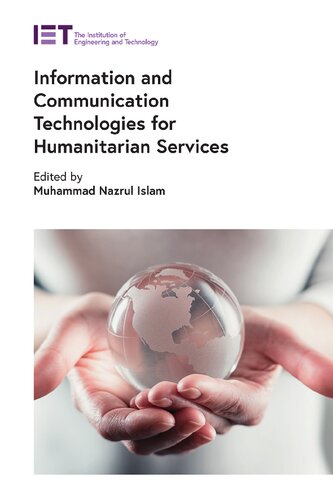

Most ebook files are in PDF format, so you can easily read them using various software such as Foxit Reader or directly on the Google Chrome browser.
Some ebook files are released by publishers in other formats such as .awz, .mobi, .epub, .fb2, etc. You may need to install specific software to read these formats on mobile/PC, such as Calibre.
Please read the tutorial at this link: https://ebookbell.com/faq
We offer FREE conversion to the popular formats you request; however, this may take some time. Therefore, right after payment, please email us, and we will try to provide the service as quickly as possible.
For some exceptional file formats or broken links (if any), please refrain from opening any disputes. Instead, email us first, and we will try to assist within a maximum of 6 hours.
EbookBell Team

4.7
76 reviewsHumanitarian services seek to promote welfare to save lives, maintain human dignity, alleviate suffering, strengthen preparedness, and provide material and logistical assistance in response to humanitarian crises. They are thus different from development aids that address underlying socioeconomic factors and provides support for the social, economic and political developments of developing nations. Information and Communication Technologies (ICTs) are becoming the backbone technologies for providing quality and efficient services and are playing an increasingly important and sophisticated role in humanitarian-service activities. Many ICT-based solutions exist such as tools to support the work of humanitarian organizations, mobile applications and solutions to provide health services, open source web portals for disaster management systems, and mobile and autonomous devices to provide assistance.
This edited book covers new developments, innovations, and research outcomes for the creation and deployment of effective ICT technologies and solutions to support humanitarian services. Coverage includes theories as well as information, mobile and networking applications that foster information exchange and cooperation in the humanitarian and emergency management fields.
Aimed at ICTs and computer engineers, professionals, and researchers working on practical and lasting ICT solutions to support humanitarian services, this will also be a useful reference for advanced students and lecturers in the field, entrepreneurs and researchers from government, non-government and industry organizations, as well as professional in NGO organizations, ethics committees, and policymakers.